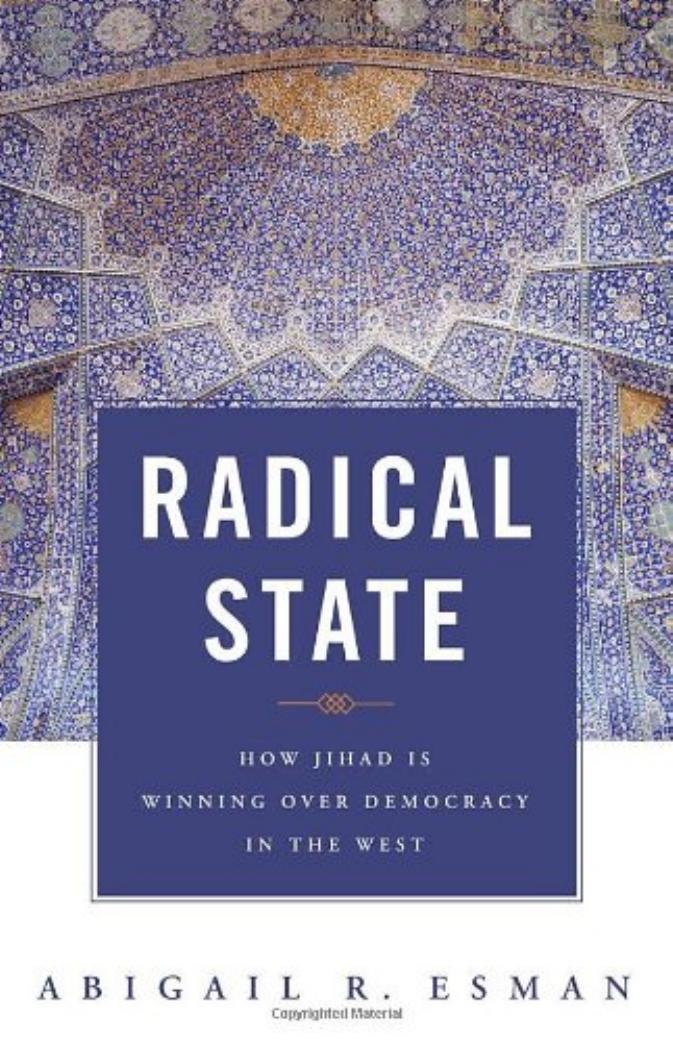Radical State: How Jihad Is Winning Over Democracy in the West (Praeger Security International) by Abigail R. Esman

Author:Abigail R. Esman
Language: eng
Format: mobi, pdf
Published: 2010-12-24T18:59:00+00:00
By now, Jahjah had become a familiar figure in Belgium and the Netherlands. The AEL had staged any number of demonstrations, and Jahjah, whose statements to the Western press consistently appeared mild-mannered, had also been quoted inciting violence against Israel in his closed-session speeches to Muslims. His motto, adopted from Malcolm X, was "by any means necessary," and he flaunted it on the AEL Web site and shouted it to his supporters. He and members of his League were repeatedly arrested, and repeatedly, too, released.
But in May 2004, Jahjah confronted a force he could neither intimidate nor inspire: Dutch filmmaker and commentator Theo van Gogh.
The debate took place in a sold-out city theater-the Stadschouwburg- on Amsterdam's Leidseplein, over questions of "idealism," pitting Abou Jahjah against D66 leader Boris Dittrich, a gay human rights activist who ran the liberal-social party and was known for having initiated several important laws defending victims' rights. Theo van Gogh was called to moderate.
But minutes before the third round of the debate was to begin, Jahjah expressed his disapproval of the selection of Van Gogh. In answer, Van Gogh stepped down, because, he said, "I find that the debate must stand above the moderator."
But he didn't leave it there; first, he explained to the audience what had happened, and announced that journalist Yoeri Albrecht, one of the organizers of the event, would take his place. "I find it odd, however," said Theo van Gogh, "that a pimp for the prophet, with Allah and a pair of enormous bodyguards on his side, is unwilling to enter a discussion if I am leading it."
That phrase-"pimp for the prophet"-would follow Van Gogh for the rest of his days.
Jahjah jumped from his seat and left the theater, followed by a crowd of his supporters. "Allah knows better!" Van Gogh called out after him. Outside the theater, fighting erupted between supporters of the two sides as debate organizers attempted to convince Jahjah to stay. Jahjah, however had "had enough of that pig," he said, and left. Van Gogh, despite urging to take a taxi for his safety, grabbed his bicycle and headed home. "Jahjah," he pronounced as he departed, "is the nail in the casket of free expression, and free expression must be defended. I will say whatever it is I think." And he mounted his bike and left.
Many-and I'm among them-found the events comical. But Holland in those days was not easily amused, and vulnerable to being set off balance by discussions of what may or may not be said. "Theo is asking for it," some argued. "Jahjah had it coming," others said. Had Van Gogh tested the limits of free speech? It certainly would not have been the first time. Yet why point to him, when imams were known to call for the stoning of homosexuals from mosques throughout the country, and chants calling for the gassing of the Jews were commonplace?
Download
Radical State: How Jihad Is Winning Over Democracy in the West (Praeger Security International) by Abigail R. Esman.pdf
This site does not store any files on its server. We only index and link to content provided by other sites. Please contact the content providers to delete copyright contents if any and email us, we'll remove relevant links or contents immediately.
The Secret History by Donna Tartt(16623)
The Social Justice Warrior Handbook by Lisa De Pasquale(11489)
Thirteen Reasons Why by Jay Asher(7788)
This Is How You Lose Her by Junot Diaz(5771)
Weapons of Math Destruction by Cathy O'Neil(5036)
Zero to One by Peter Thiel(4824)
The Myth of the Strong Leader by Archie Brown(4789)
Promise Me, Dad by Joe Biden(4447)
Beartown by Fredrik Backman(4417)
Stone's Rules by Roger Stone(4415)
How Democracies Die by Steven Levitsky & Daniel Ziblatt(4398)
The Fire Next Time by James Baldwin(4342)
100 Deadly Skills by Clint Emerson(4076)
A Higher Loyalty: Truth, Lies, and Leadership by James Comey(4032)
Rise and Kill First by Ronen Bergman(4012)
The David Icke Guide to the Global Conspiracy (and how to end it) by David Icke(3881)
The Farm by Tom Rob Smith(3872)
Secrecy World by Jake Bernstein(3782)
The Doomsday Machine by Daniel Ellsberg(3730)
